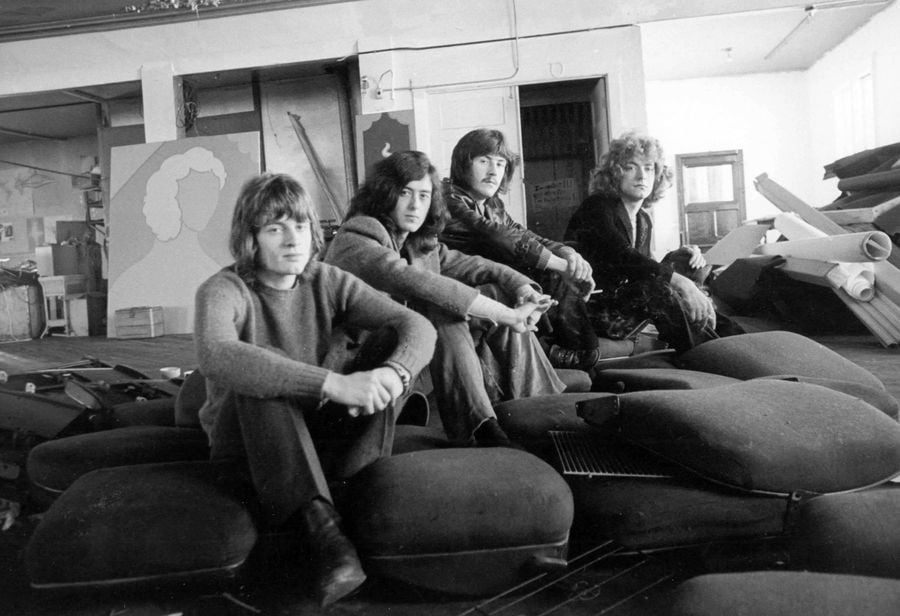If I were reincarnated as a 1970s band manager, I wouldn’t step within 30 metres of Led Zeppelin. Not only were they constantly trashing hotel rooms and – as in the case of Jimmy Page – starting sexual relationships with 14-year-old girls, but they were also constantly getting into trouble at customs. In fact, at one point, they were banned in two hemispheres at once.
By the mid-1970s, Led Zeppelin were ridiculously successful. With six studio albums to their name and such hits as ‘Stairway To Heaven’, ‘Immigrant Song’, and ‘Whole Lotta Love‘ receiving airplay worldwide, these four bell-bottomed virtuosos found themselves in possession of an enormous and slightly fanatical fanbase. Zeppelin toured extensively to appease the masses, hitting up city after city for months on end.
One of the most important of these cities, in America at least, was Boston. Zeppelin had performed a series of tumultuous shows there in the late ’60s, so when they announced their return, there was a huge wave of interest. Something like 3,000 fans – most of them teenagers – waited outside the venue overnight so that they’d be ready when the ticket office opened the following morning. It wasn’t long before things turned ugly. Somehow a riot broke out, and by the time the city’s mayor arrived the venue was a smouldering shell.
The carnage was enough to convince the authorities that Led Zeppelin were a bad influence on Boston’s youth. It wasn’t until 2020 that Jimmy Page discovered Zeppelin had been banned from the venue. Posting photographs of the Boston crowds on his Facebook, the guitarist wrote: “There was apparently a five-year ban put on the band playing the venue. I was blissfully unaware of any of these shenanigans, but the Mayor was, by all accounts, a Rolling Stones fan”.
Of course, by 1975, Led Zeppelin were used to being denied entry to all sorts of places. A few years before the Boston riot, Plant, Page, Jones and Bonham had taken their private jet to Singapore to play at one of the city’s outdoor venues. On arrival, they made their way from the landing strip to customs, where they expected to be given the full VIP treatment. They didn’t get far. No sooner had they disembarked than border control stopped them in their path. As Stephen Davis wrote in Hammer of the Gods: The Led Zeppelin Saga: “Not only were Led Zeppelin not allowed into the country, they were even refused permission to get off their plane and had to fly back to London”
At that time, the Singaporean government was deeply distrustful of all things countercultural. In an effort to push back the tide of hippiedom, the island nation launched a campaign against Western “drug culture”, of which rock music and long hair were deemed a fundamental part. Obviously, this made Led Zeppelin very unpopular. The band’s salon-fresh locks were regarded as a direct threat to the social order. Many hippies travelling to Singapore had been turned away at customs for refusing to shave their own unkempt hairstyles, and now Zeppelin were faced with the same ultimatum: go bald or go home. They went home.
Yep, if I were reincarnated as a ’70s band manager, I’d latch myself to a group of inoffensive, short-haired softies. I wouldn’t have made nearly as much money. But at least I’d have had time to peruse the Toblerones in Duty-Free.

